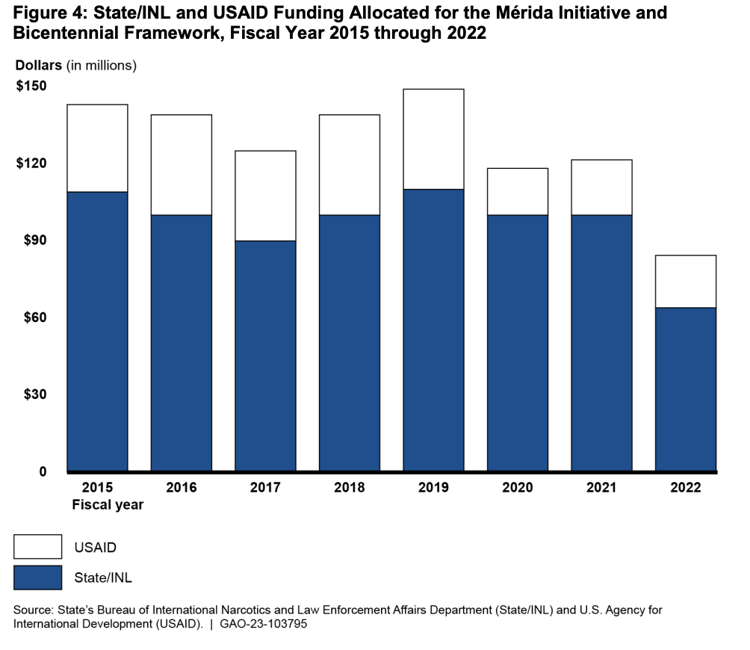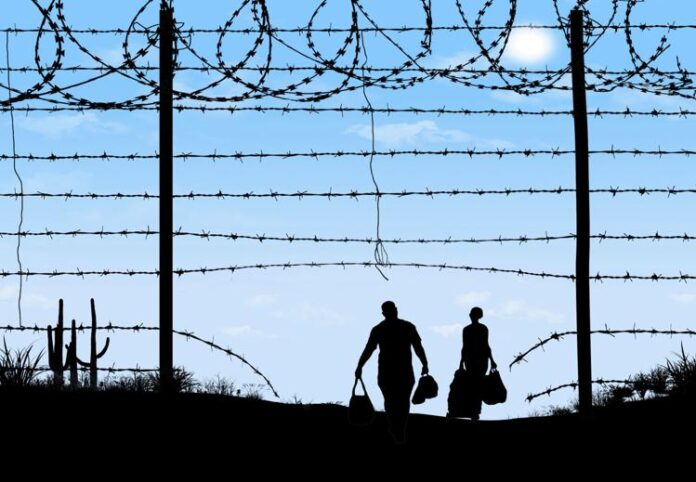(The Center Square) – The U.S. government has spent more than $3 billion in Mexico to reduce drug trafficking and transnational crime since 2008, but a new report found little progress to show for the continued spending.
A report from the U.S. Government Accountability Office found that “the U.S. government cannot demonstrate that it is achieving its goals in Mexico and that its investments, at over $3 billion since 2008, have been spent effectively.”
The U.S. money going to Mexico is supposed to address transnational organized crime and violence in Mexico, enhance the country’s rule of law and reduce drug trafficking to the United States.
The U.S. assistance has been guided by two bilateral cooperative arrangements: the Mérida Initiative from 2008 to 2021 and the Bicentennial Framework for Security, Public Health, and Safe Communities, which replaced the Mérida Initiative in late 2021. The Bicentennial Framework remains in effect.
The Bicentennial Framework includes provisions covering U.S. contributions to addressing Mexico’s security challenges.
“Specifically, the United States relies on Mexico to help manage cross-border crime and migrant smuggling, and Mexico relies on the United States to disrupt the flow of firearms into Mexico and decrease the U.S. demand for drugs,” according to the report. “Firearms from the United States fuel violence in Mexico.”
In 2021, the U.S. Government Accountability Office reported that about 70% of firearms seized in Mexico from 2014 through 2018 and submitted for tracing originated in the United States.
Cartels in Mexico supply most of the cocaine, methamphetamine, heroin, and illicit fentanyl smuggled into the United States, according to the Office of National Drug Control Policy.
“Despite ongoing security assistance, the security situation in Mexico has significantly worsened over the last 15 years. From 2007 to 2021, the homicide rate in Mexico more than tripled to one of the highest national homicide rates in the world, from eight homicides per 100,000 people to 28 per 100,000 people, according to the United Nations,” according to the report. “Meanwhile, Mexico has extremely low rates of prosecution for all crimes, according to the 2022 State Department Human Rights Report on Mexico.”
The report looked at the work of the U.S. Department of State’s Bureau of International Narcotics and Law Enforcement Affairs and the U.S. Agency for International Development.
The Bureau of International Narcotics and Law Enforcement Affairs’ programs have focused on providing training and assistance to Mexican officials from the justice sector, border security, military and law enforcement. The assistance includes equipment for forensic laboratories, drug detection, and border surveillance, according to the report.
USAID programs have focused on engaging with Mexican government institutions, civil society organizations and the private sector to promote the rule of law and trust in government, prevent crime and violence, and advance human rights, according to the report.
“State/INL and USAID officials said they face a number of political, security, capacity, and U.S. domestic challenges that limit their ability to implement projects across Mexico,” according to the report. “Despite these challenges, State and USAID continue to work throughout many regions of Mexico.”
One problem has been less cooperation from Mexico President Andrés Manuel López Obrador.
“The López Obrador administration, which took office in late 2018, reduced security cooperation with the United States at the federal level,” according to the report. “This limited some programs, according to U.S. officials.”
On top of that, some Mexican states aren’t interested in working with U.S. agencies.
“Some states have been unable or unwilling to receive U.S. assistance, according to State/INL officials,” according to the report. “In addition, reluctance to collaborate among Mexican government partners could continue to limit programs in those locations.”
Corruption is yet another problem.
“High levels of impunity and corruption in Mexico impede the rule of law and limit potential partnerships for State/INL and USAID,” according to the report. “For example, State’s 2022 human rights report stated that some Mexican government officials were complicit with international organized criminal groups, but these officials were rarely prosecuted or convicted.”
Safety issues also present challenges for those working in Mexico. The report found that “high levels of insecurity in some Mexican states limit U.S. agencies’ ability to implement programs.”
The report found that more work remains to be done.
“State officials said they have had difficulties measuring the effectiveness of U.S. assistance in Mexico, in part because State/INL experienced challenges negotiating shared performance indicators with Mexico,” according to the report. “In particular, State/INL has not clearly identified what projects will contribute toward the goals of the Framework or what performance indicators will be used to measure progress, and they have not developed monitoring and evaluation plans to assess progress. Regardless of negotiations with Mexico, State/INL is responsible for assessing the progress of the Framework. Without addressing the key elements to assess progress, the U.S. government cannot demonstrate that it is achieving its goals in Mexico, or that its investments over the last 16 years have been effective.”

Republished with the permission of The Center Square.














